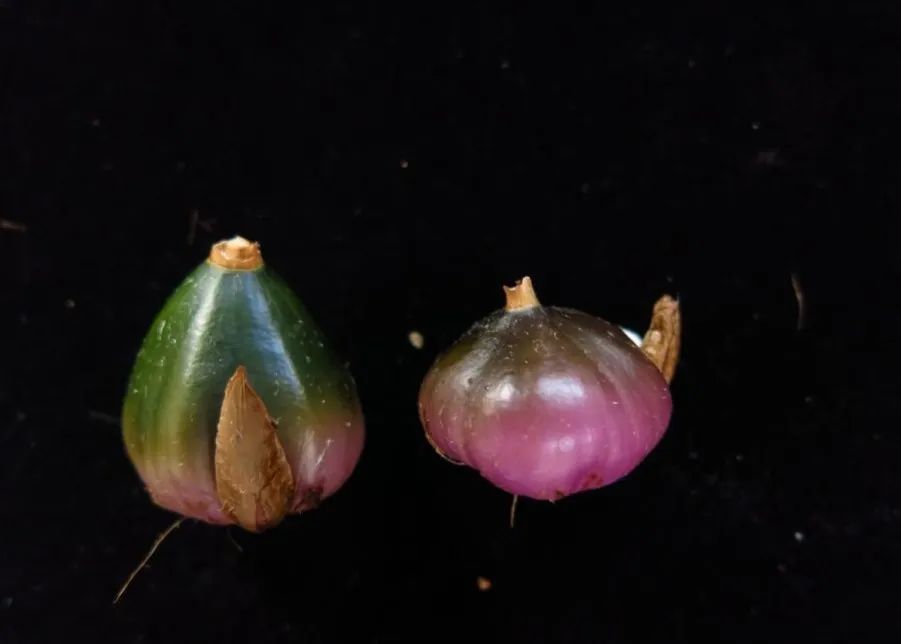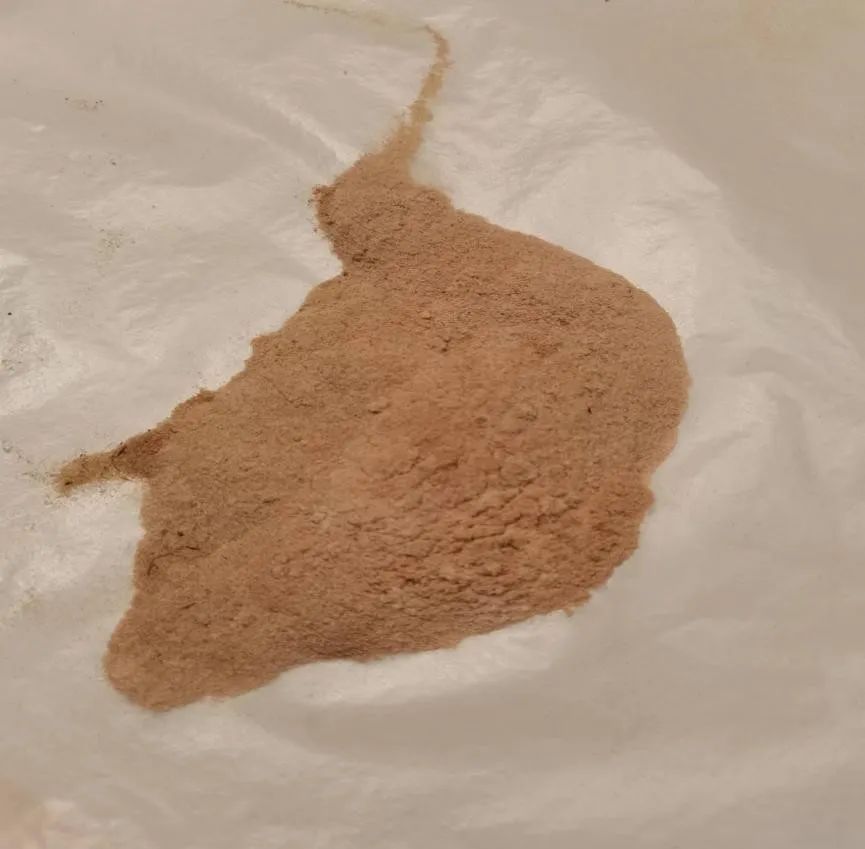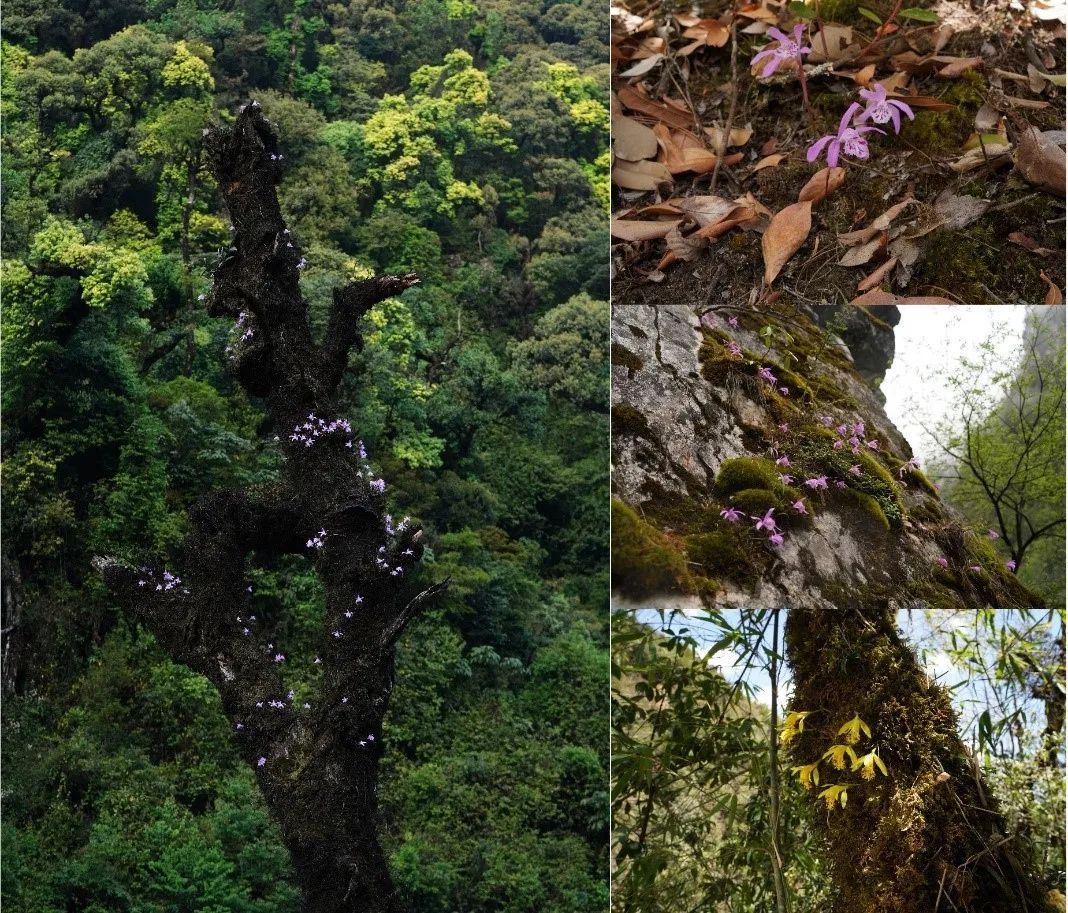This article is reprinted from [CCTV Finance];
In 2021, The genus of Alliflora will be included in the “List of National Key Protected Wild Plants”, although the wild resources of Orchid It has been protected by law, but in recent years, the price of durian orchid has remained high. Driven by huge interests, illegal mining is still rampant.
Is it related to garlic?
There are more than 20 species of Orchid in the world, mainly distributed in China, India, Nepal, Bhutan, Myanmar, Thailand, Laos and Vietnam. In addition, others are distributed. The southwestern mountainous area of my country is its modern distribution center, and Yunnan is the place with the most adaptive radiation.
The Orchid is not garlic, but an orchid plant. It has this very down-to-earth name because of its unique pseudobulb structure, which looks like garlic in appearance. Somewhat similar.

Pseudobulbs of Orchid solani, Picture source: Zhang Wei, Kunming Institute of Botany, Chinese Academy of Sciences
In recent years, the market demand of P. bulbocodioides and P. yunnanensis has been increasing year by year, and the immature artificial cultivation technology has led to a soaring market price, and wild germplasm resources have been severely damaged.
The State Forestry and Grassland Administration promulgated the “List of National Key Protected Wild Plants” in September 2021, in which All the genus of the genus Alli are listed as second-class national protected plants .
It is too ruthless to grow up.
It is listed as a second-class protected plant, the main reason is that people The “smashing” is too ruthless, and the artificial excavation is too serious, resulting in almost extinction of wild resources.
As a sexually propagated seed, it has no endosperm and is as fine as dust, and its germination rate is extremely low under natural conditions.

Dust-like seeds of Orchid moniliformes, picture source: Hu Zhonghui, engineer of Kunming Institute of Botany, Chinese Academy of Sciences
< p>On the other hand, Orchid dulcis grows mainly on the surface of stone walls or tree trunks covered with moss. The growth environment is very harsh, and it is easy to be damaged by man, and once damaged, it is difficult to restore.
The difficulty of seed germination and the narrow suitable growth area make it extremely difficult for artificial planting, which further aggravates the artificial excavation.

The Habitat of Solitary orchid, Image source: Zhang Wei, Kunming Institute of Botany, Chinese Academy of Sciences
Which other plants are prohibited from digging?
In addition to Orchid dulcis, there are 455 species and 40 categories of wild plants under national key protection in the “List of National Key Protected Wild Plants”, including 54 national first-class protected wild plants and 4 There are 401 species and 36 categories of wild plants under national second-class protection.
The Ginkgo biloba, Taxus chinensis, which we are very familiar with, have been destroyed because of their high medicinal value and the difficulty of growth and reproduction under natural conditions. It is listed as a key protected plant, and excavation of its wild resources is illegal .
Source: CCTV News Client